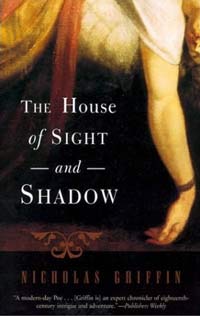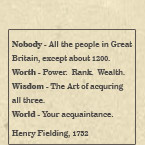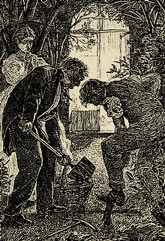 The House of Sight and Shadow
The House of Sight and Shadow
by Nicholas Griffin
Early Eighteenth-century London, and two doctors are crisscrossing the boundaries of morality in the heady pursuit of scientific progress. This challenge leads Sir Edmund Calcraft, an eminent and notorious anatomist, and Joseph Bendix, his ambitious young student, into playing a dark game with the lawless side of English society. But Bendix’s growing passion for a woman he first glimpses in Calcraft’s house threatens to end their mutual quest.
From gallows to madhouses, from anatomical laboratories to a Frost Fair set on the frozen Thames, the two men compete in both head and heart. Mixing history, medical lore, and myth, The House of Sight and Shadow is a compelling tale about ambition, deception and the fallibility of both love and reason.
Random House Trade Paperbacks, ISBN-10: 0375759395
![]()
“This book has everything going for it: quirky characters, a cleverly convoluted plot, great repartee and a lively period setting.”
—The Boston Herald
“A modern day Poe ... Griffin, wh’s fast carving out a niche as an expert chronicler of eighteenth century intrigue and adventure is a writer to watch.”
—Publishers Weekly (starred review)
“An impressively imaginative approach to history and a wry tale of a young man who is, to the last, sick with love.”
—The London Times.
“Ought to go straight to the Booker Short List for its intelligent writing, original plot, and a remarkable gasp of historical detail and language.”
—The Daily Mail.
“Refreshingly different ... beautifully plotted ... Griffin conjures up a London that is both distant and exotic, familiar and plausible.”
—The Independent on Sunday


